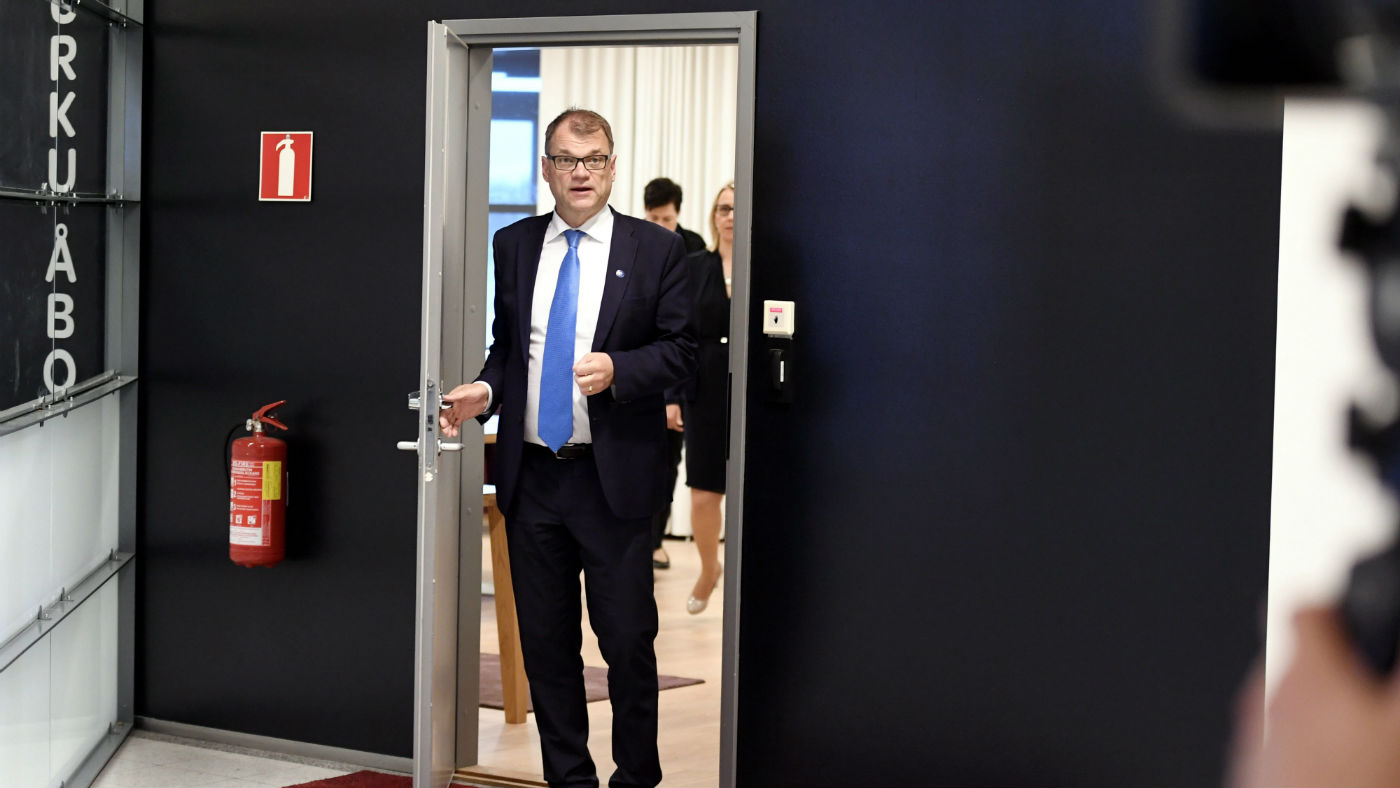Hardline nationalists pushed out of Finnish government
True Finns party splits following election of anti-immigration hardliner Jussi Halla-aho as leader

A free daily email with the biggest news stories of the day – and the best features from TheWeek.com
You are now subscribed
Your newsletter sign-up was successful
Finland's governing coalition has narrowly avoided collapsing after a political crisis triggered by the election of an anti-immigration hardliner to lead the nationalist True Finns party.
The Eurosceptic party has announced it will split in two, sidelining its previous leadership and ending four days of "high drama", the Financial Times reports.
How did the crisis start?
The Week
Escape your echo chamber. Get the facts behind the news, plus analysis from multiple perspectives.

Sign up for The Week's Free Newsletters
From our morning news briefing to a weekly Good News Newsletter, get the best of The Week delivered directly to your inbox.
From our morning news briefing to a weekly Good News Newsletter, get the best of The Week delivered directly to your inbox.
Events began when True Finns MEP Jussi Halla-aho won an overwhelming majority in Saturday's leadership election.
The politician, who was found guilty of hate speech in 2012 after comparing Islam to paedophilia, was a deeply unpopular choice among his centrist partners in the three-party coalition and moderates in the group refused to work with him.
It led Prime Minister Juha Sipila to warn the power-sharing deal could collapse.
"We already had to stretch our common values to the extreme and now the differences in values are even bigger," he said.
A free daily email with the biggest news stories of the day – and the best features from TheWeek.com
The True Finns entered government as the second-largest party in 2015, alongside Sipila's Center Party and the pro-EU National Coalition Party, but have struggled to push through their legislative agenda.
What happened next?
Following days of crisis talks, the True Finns announced that 21 of its 38 MPs would split from Hallo-aho and his top team and form a new coalition with the remaining parties.
Simon Elo, chairman of the breakaway New Alternative group said the decision would "likely ruin our political careers... but we are determined to do this... for the right reasons".
Sipila, who was preparing to formally declare the collapse of his coalition when the announcement was made yesterday, said: "The government crisis has now been cancelled."
Why does it matter?
"The split between hardliners and more moderate members of the nationalists was the latest in a series of blows to Europe's anti-establishment parties," Reuters reports.
Bloomberg correspondent Leonid Bershidsky says the situation is "further proof that populists can't govern" in western Europe. "The unsuccessful government experience of the True Finns is in line with the results of experiments elsewhere in trying to integrate such parties into mainstream politics," he says.
-
 Regent Hong Kong: a tranquil haven with a prime waterfront spot
Regent Hong Kong: a tranquil haven with a prime waterfront spotThe Week Recommends The trendy hotel recently underwent an extensive two-year revamp
-
 The problem with diagnosing profound autism
The problem with diagnosing profound autismThe Explainer Experts are reconsidering the idea of autism as a spectrum, which could impact diagnoses and policy making for the condition
-
 What are the best investments for beginners?
What are the best investments for beginners?The Explainer Stocks and ETFs and bonds, oh my
-
 Epstein files topple law CEO, roil UK government
Epstein files topple law CEO, roil UK governmentSpeed Read Peter Mandelson, Britain’s former ambassador to the US, is caught up in the scandal
-
 Iran and US prepare to meet after skirmishes
Iran and US prepare to meet after skirmishesSpeed Read The incident comes amid heightened tensions in the Middle East
-
 Israel retrieves final hostage’s body from Gaza
Israel retrieves final hostage’s body from GazaSpeed Read The 24-year-old police officer was killed during the initial Hamas attack
-
 China’s Xi targets top general in growing purge
China’s Xi targets top general in growing purgeSpeed Read Zhang Youxia is being investigated over ‘grave violations’ of the law
-
 Panama and Canada are negotiating over a crucial copper mine
Panama and Canada are negotiating over a crucial copper mineIn the Spotlight Panama is set to make a final decision on the mine this summer
-
 Why Greenland’s natural resources are nearly impossible to mine
Why Greenland’s natural resources are nearly impossible to mineThe Explainer The country’s natural landscape makes the task extremely difficult
-
 Iran cuts internet as protests escalate
Iran cuts internet as protests escalateSpeed Reada Government buildings across the country have been set on fire
-
 US nabs ‘shadow’ tanker claimed by Russia
US nabs ‘shadow’ tanker claimed by RussiaSpeed Read The ship was one of two vessels seized by the US military